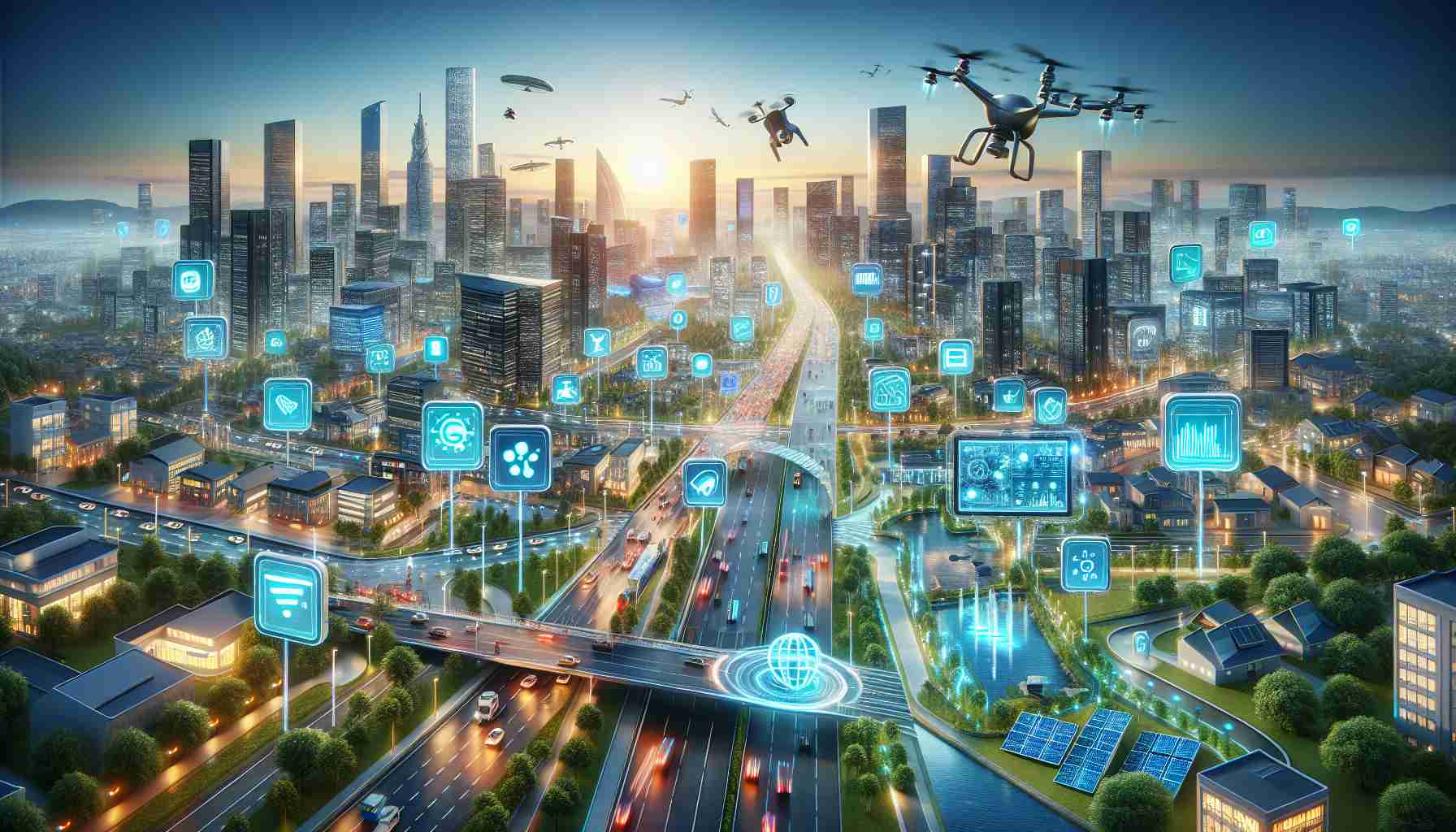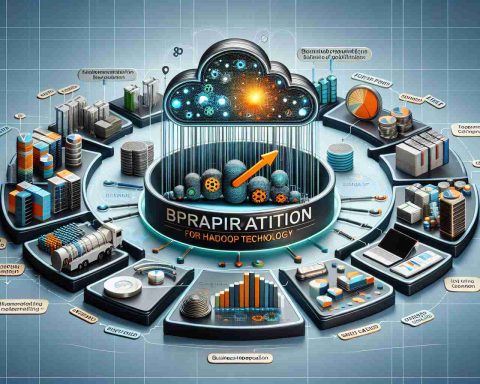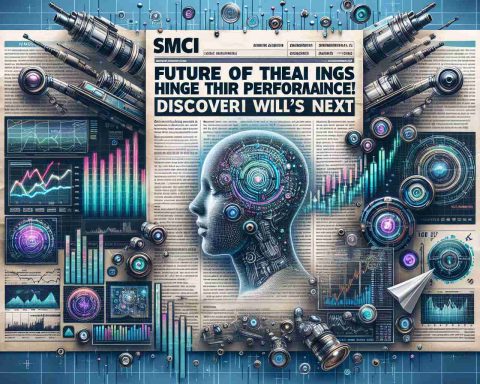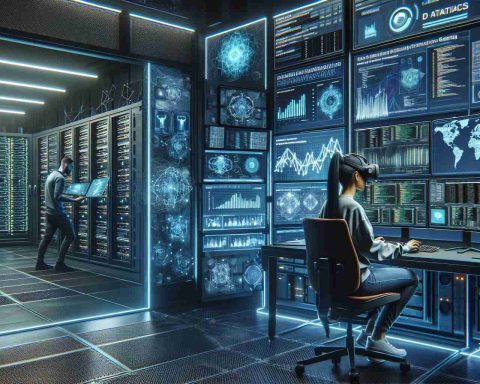In recent years, the concept of smart cities has gained tremendous traction, and the latest developments in Smart City Management Interfaces (SMCI) are setting the stage for what could revolutionize urban living. As cities continue to grow, the demand for intelligent infrastructure that enables efficient management and sustainable living becomes paramount.
SMCI is more than just a buzzword; it’s an evolving technological framework that integrates digital, physical, and human systems into an efficient, effective ecosystem. By utilizing the power of IoT, big data analytics, and AI-driven solutions, SMCI empowers urban planners, government bodies, and citizens to harmoniously coexist in densely populated environments. From traffic management and waste disposal to energy savings and public safety, SMCI offers a comprehensive toolset that adapts to the dynamic needs of a modern city.
The latest SMCI advancements have introduced innovative features, emphasizing real-time data collection and analysis. These developments are paving the way for more responsive urban ecosystems that can adjust in real-time to changing conditions, ensuring seamless city operations. This is particularly crucial as cities face pressures of climate change, urbanization, and resource scarcity.
Furthermore, with increased collaboration between tech giants and local governments, there’s a growing emphasis on creating more inclusive and personalized urban experiences. This human-centric approach ensures that smart cities are not just technologically advanced, but also livable and conducive to human well-being.
The potential of SMCI is immense, heralding a future where cities are smarter, more sustainable, and ultimately, more human-centric.
The Future of Smart City Management Interfaces and Their Impacts on Society and the Environment
The rapid advancement of Smart City Management Interfaces (SMCI) has profound implications for the future of urban living, presenting both opportunities and challenges in their impact on the environment, humanity, and the global economy. As these interfaces become more sophisticated, integrating the Internet of Things (IoT), big data analytics, and AI-driven solutions, they pave the way for enhanced sustainability, efficiency, and inclusivity in urban environments.
Environmental Impact
One of the most significant ways SMCI affects the environment is through its potential to make cities more sustainable. By employing real-time data collection and analysis, SMCI can optimize energy consumption, reduce carbon emissions, and enhance waste management. Cities can monitor air quality, water usage, and energy efficiency to implement timely interventions that curb pollution and resource wastage. This proactive approach not only reduces the ecological footprint of urban areas but also establishes a framework for cities to meet climate goals and adapt to inevitable environmental changes.
Impact on Humanity
For humanity, the integration of SMCI promises substantial improvements in quality of life. With a focus on inclusivity and personalization, these technologies can cater to diverse community needs. Real-time data enables personalized public services, whether through targeted health alerts, efficient public transportation, or adaptive public safety responses. These enhancements mean that cities can become not just habitats of convenience but nurturing environments that actively contribute to human well-being and happiness.
Economic Implications
Economically, the proliferation of SMCI has the potential to drive significant growth. It creates a demand for new skills and jobs in technology and urban planning sectors, fostering innovation and entrepreneurship. Cost savings achieved through efficient resource management can be redirected to support other essential services, thereby bolstering economic resilience. However, there are challenges, including the potential for job displacement and economic inequality as automation and data-driven systems become more pervasive.
Connections to the Future of Humanity
SMCI sets the stage for a future where urban centers are hubs of innovation and sustainability. By addressing the pressures of climate change and resource scarcity through intelligent urban planning, SMCI plays a critical role in ensuring that cities remain viable and vibrant for future generations. As these technologies continue to evolve, they must be developed with an emphasis on ethical considerations, ensuring they serve the greater good without compromising privacy or equity.
In conclusion, while the promise of SMCI is immense, realizing its full potential will require concerted efforts from governments, tech companies, and citizens. By fostering collaborations and addressing the socio-economic challenges that accompany technological advancements, we can ensure that the smart cities of tomorrow are places where humanity and the environment coexist harmoniously.
Unveiling the Future: Innovations and Trends in Smart City Management Interfaces
As the concept of smart cities progresses, the latest advancements in Smart City Management Interfaces (SMCI) are poised to transform urban living in unprecedented ways. Beyond the integration of IoT, big data analytics, and AI, these innovations are crafting an urban environment that is not only technologically advanced but also focused on sustainability, inclusivity, and security.
Insights and Innovations
Recent innovations in SMCI focus on real-time adaptive systems. These systems integrate sensor networks and AI to collect and process data instantaneously, enabling urban areas to respond swiftly to changes such as traffic bottlenecks, environmental shifts, and public safety concerns. This real-time adaptability is crucial as it helps cities tackle the challenges posed by climate change and rapid urbanization.
Emerging Trends in Smart City Management
The trend towards personalized urban experiences is gaining momentum. SMCI technology is increasingly used to tailor city services to the specific needs of its residents, ensuring that cities remain human-centric. This includes personalized public transport suggestions, customized energy management solutions for households, and even individualized waste management schedules.
Another significant trend is the growing collaboration between technology companies and municipal authorities to develop regulatory frameworks. This partnership paves the way for the ethical implementation of SMCI, addressing privacy concerns and ensuring data security, which are pivotal for public trust.
Security Aspects of SMCI
With the increased reliance on digital infrastructure, security has become a crucial aspect of SMCI development. Encryption technologies and secure data channels are being prioritized to protect against cyber threats. Furthermore, cities are adopting AI-based surveillance and anomaly detection systems to preemptively identify and address potential security breaches.
Sustainability and Environmental Impacts
One of the core ambitions of SMCI is enhancing sustainability. New SMCI solutions emphasize energy efficiency by optimizing power consumption through smart grids and renewable energy integrations. They also foster sustainable urban mobility by promoting electric vehicles and shared transport options, ultimately reducing the carbon footprint of cities.
Predictions for Future Developments
Looking ahead, SMCI is expected to become more autonomous, with adaptive learning capabilities enabling self-optimization of urban systems without human intervention. As AI continues to evolve, the integration of machine learning and predictive analytics will further refine city management processes.
Conclusion
The future of smart cities, buoyed by advances in SMCI, is promising a more intelligent and sustainable urban lifestyle. As cities become more interconnected, the ongoing developments in SMCI will be vital in shaping the cities of tomorrow, making them not only smarter but also more resilient and livable.
For more information on smart cities and related technological advancements, visit Cisco and IBM, leaders in smart city solutions.




















